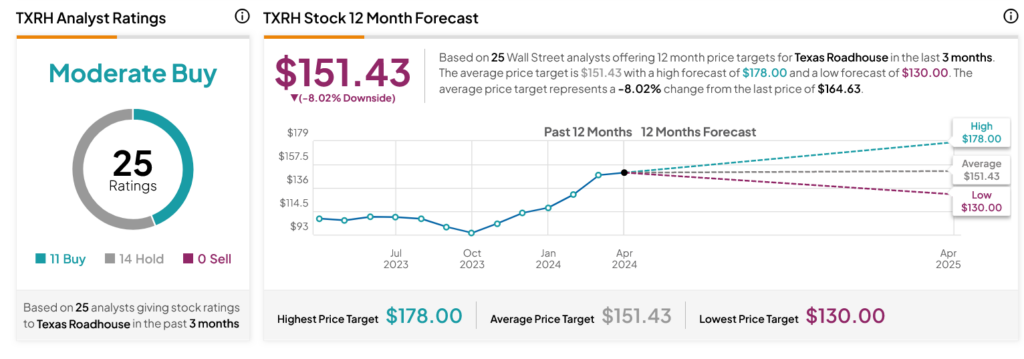It would be easy to think that restaurants are struggling these days, and many of them are. But not all of them; just ask Texas Roadhouse (NASDAQ:TXRH), as the steakhouse chain gained over 4% in Friday afternoon’s trading session. The latest earnings report Texas Roadhouse offered up brought with it news as good as whatever kind of butter it is they’re using on those rolls they offer.
Several exciting data points emerged, starting with a 12% jump in sales and carrying on with an expectation that this was going to be the year that costs finally start coming down, or, barring that, stop going up anywhere near as fast. Commodity inflation prices—which covers things like Texas Roadhouse standards beef and potatoes—are expected to increase just 3% this year, as opposed to the 8.9% seen in 2023. Meanwhile, wage and labor inflation is expected to moderate, up just 4.3% this year as compared to last year’s 8% increase.
Leaning into Its Spinoff Brands
While Texas Roadhouse put up some solid information, that wasn’t all it had to offer investors. Reports note that it’s “leaning into” its spinoff brands, including “Bubba’s 33,” a pizza, burger, and beer chain that doesn’t have 50 locations to its credit yet. However, those that are running are pulling in about $120,000 a week in average sales, which is certainly reason to be encouraged. Meanwhile, its Jaggers branch, a quick-service restaurant with a range of sandwiches, is pulling in about half that, which is still on goal as far as management is concerned.
Is Texas Roadhouse Stock a Good Buy?
Turning to Wall Street, analysts have a Moderate Buy consensus rating on TXRH stock based on 11 Buys and 14 Holds assigned in the past three months, as indicated by the graphic below. After a 49.79% rally in its share price over the past year, the average TXRH price target of $151.43 per share implies 8.02% downside risk.

















